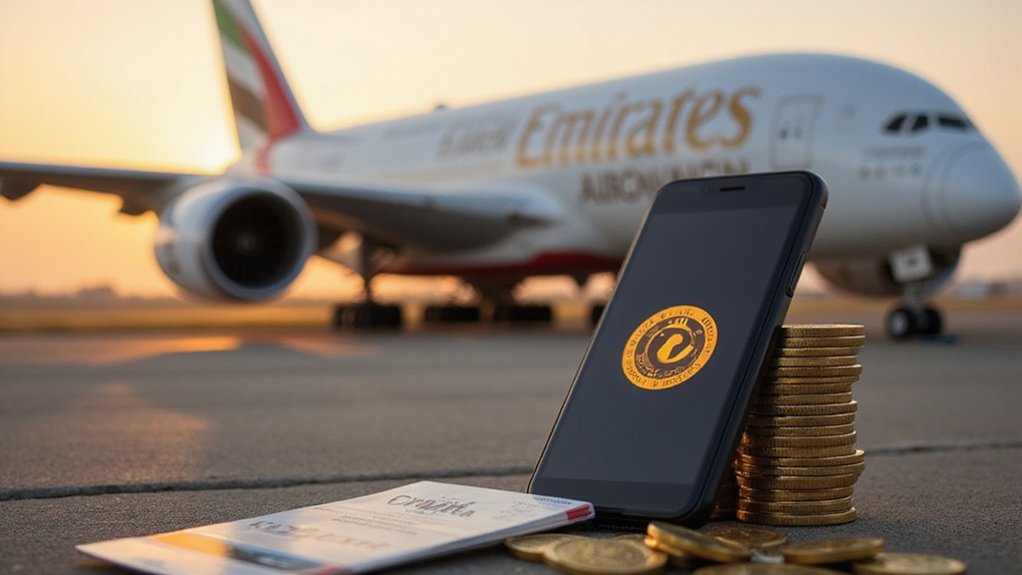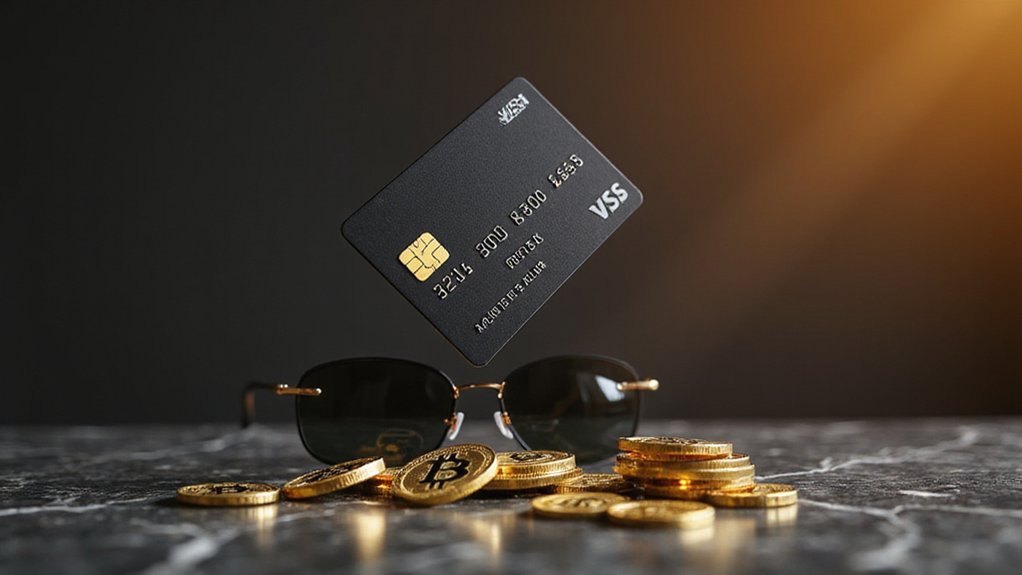In a move that would have seemed fantastical just a decade ago—when Bitcoin was still dismissed as internet funny money and airlines were charging for peanuts—Emirates has signed a Memorandum of Understanding with Crypto.com on July 9, 2025, to integrate cryptocurrency payments into its booking system. The ceremony, attended by Sheikh Ahmed bin Saeed Al Maktoum and other dignitaries, signals a remarkable shift in how legacy industries approach digital assets.
The integration timeline stretches through 2026, allowing Emirates customers to purchase flights using Bitcoin and other cryptocurrencies via Crypto.com Pay. This deliberate rollout reflects the airline’s commitment to maintaining security standards while maneuvering the regulatory complexities inherent in cryptocurrency adoption—a revitalizing cautious approach in an industry known for bold proclamations followed by quiet retreats.
Emirates’ strategic calculus appears sound: target younger, tech-savvy travelers who increasingly view traditional payment rails as antiquated infrastructure. The partnership leverages Crypto.com’s established compliance framework and fraud mitigation systems, addressing the volatility and security concerns that have historically plagued crypto commerce. Rather than reinventing the wheel, Emirates wisely chose to integrate existing, battle-tested technology.
Emirates bypasses crypto infrastructure headaches by partnering with proven technology rather than building payment systems from scratch.
The broader implications extend beyond mere payment convenience. Dubai’s ambition to become a global crypto hub finds tangible expression through this partnership, demonstrating how jurisdictions can embrace digital assets while maintaining regulatory oversight. The city already benefits from a robust ecosystem that encourages innovation while ensuring investor protection. Over 650 crypto companies currently operate within Dubai’s DMCC free zone, highlighting the emirate’s commitment to fostering digital asset innovation.
The aviation sector, notorious for its resistance to innovation (consider the industry’s glacial adoption of mobile boarding passes), suddenly finds itself at the forefront of financial technology integration. This shift mirrors the broader DeFi movement, which eliminates traditional financial intermediaries using blockchain-based smart contracts to facilitate transactions without institutional approval.
Market dynamics suggest this could accelerate cryptocurrency adoption for high-value international transactions, where traditional payment systems often impose significant friction through currency conversion fees and processing delays. Emirates’ global customer base provides an ideal testing ground for crypto payment scalability—assuming customers can maneuver the inevitable user experience hiccups that accompany such ambitious technological integrations.
The partnership’s success will likely inspire similar initiatives across the aviation industry, potentially legitimizing cryptocurrency payments in mainstream commerce. Whether this represents genuine financial evolution or merely sophisticated marketing remains to be seen, but Emirates has positioned itself advantageously in either scenario.









